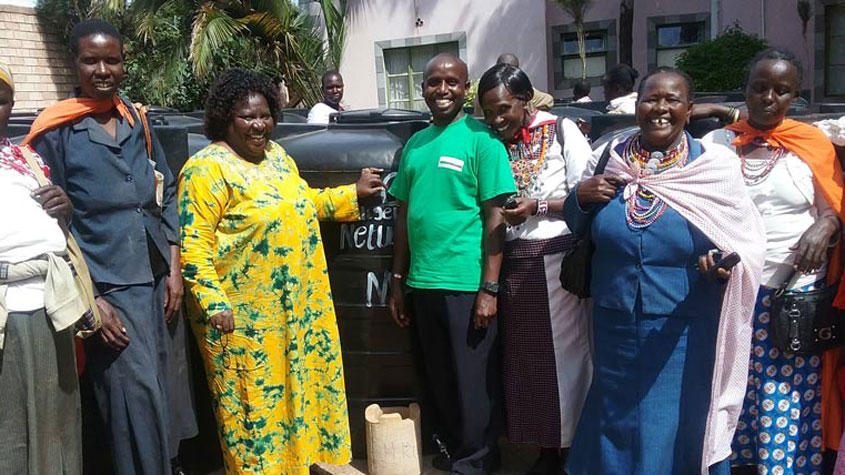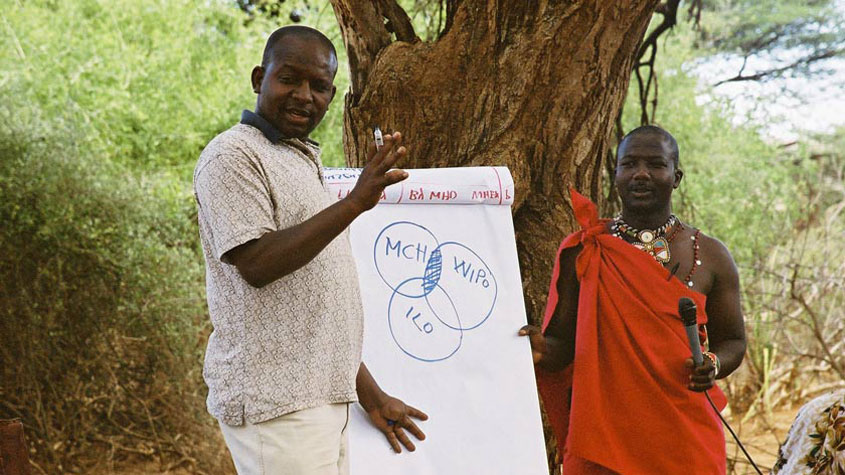Digitizing Traditional Culture
WIPO offers a hands-on "Cultural Documentation and IP Management Training Program" to assist indigenous peoples to safeguard their music, performances, art, designs and other traditional cultural expressions.
The primary goal of the program is to provide such communities with the practical skills and technical knowledge needed – in the fields of cultural documentation, archiving and intellectual property (IP) management – for them to record, archive and manage access to their own cultural heritage. The program also assists communities to develop their own IP policies, protocols and technology-based tools to manage access to their recordings and other forms of cultural documentation in a way that corresponds to their values.
Helping the Maasai preserve their cultural heritage
The Program was first piloted in Kenya in 2008, in partnership with the American Folklife Center (AFC), the Center for Documentary Studies (CDS) and the National Museums of Kenya.
Work began with two young members of the Maasai community from Laikipia, travelling to the United States of America for hands-on-training in documentary techniques and archival from the AFC and the CDS. WIPO then provided the necessary digital recording equipment for them to document and digitize their own cultural heritage on an on-going basis.
Culture is identity and identity is very important. When an elder dies, it’s just like a light burning out so we want to get that knowledge before this generation goes.
John Ole Tingoi
This enabled the community to create its own IP — in the form of digital photographs, audio-visual material, sound recordings and databases — and subsequently exercise control and make informed decisions on access and use by third parties.
Video: Tracking the efforts by two young Maasai in Kenya in their quest to document valuable cultural expressions handed down by generations. | Transcript (Credit: WIPO & United Nations Television)
The project has empowered the Maasai to seize control over the recording of their own histories, their own stories. The program turns indigenous custodians of their knowledge systems into intellectual property owners. It makes them stakeholders so they can benefit from the system.
Wend Wendland, Director of WIPO's Traditional Knowledge Division
Find out more

Protecting traditional knowledge: a grassroots perspective
Lucy Mulenkei works with indigenous communities across Kenya and the East African region to ensure they have the information they need to thrive in the modern world.

Digitizing traditional culture
Exploring how best to protect heritage from the “free for all” while at the same time preserving it for future generations.

Managing rights in digitized indigenous music
An ambitious partnership seeks to deliver concrete benefits to the community through recording, archiving and commercializing Maasai music and other cultural expressions.
Related links
Database of codes and guidelines
Examples of codes, guides, policies, protocols and standard agreements relating to the recording, digitization and dissemination of intangible cultural heritage, with an emphasis on IP issues.
WIPO Match
WIPO Match is an online tool to match seekers of specific IP-related development needs with potential providers offering resources.
Donations for the Cultural Documentation and IP Management Training Program can be made through WIPO Match.